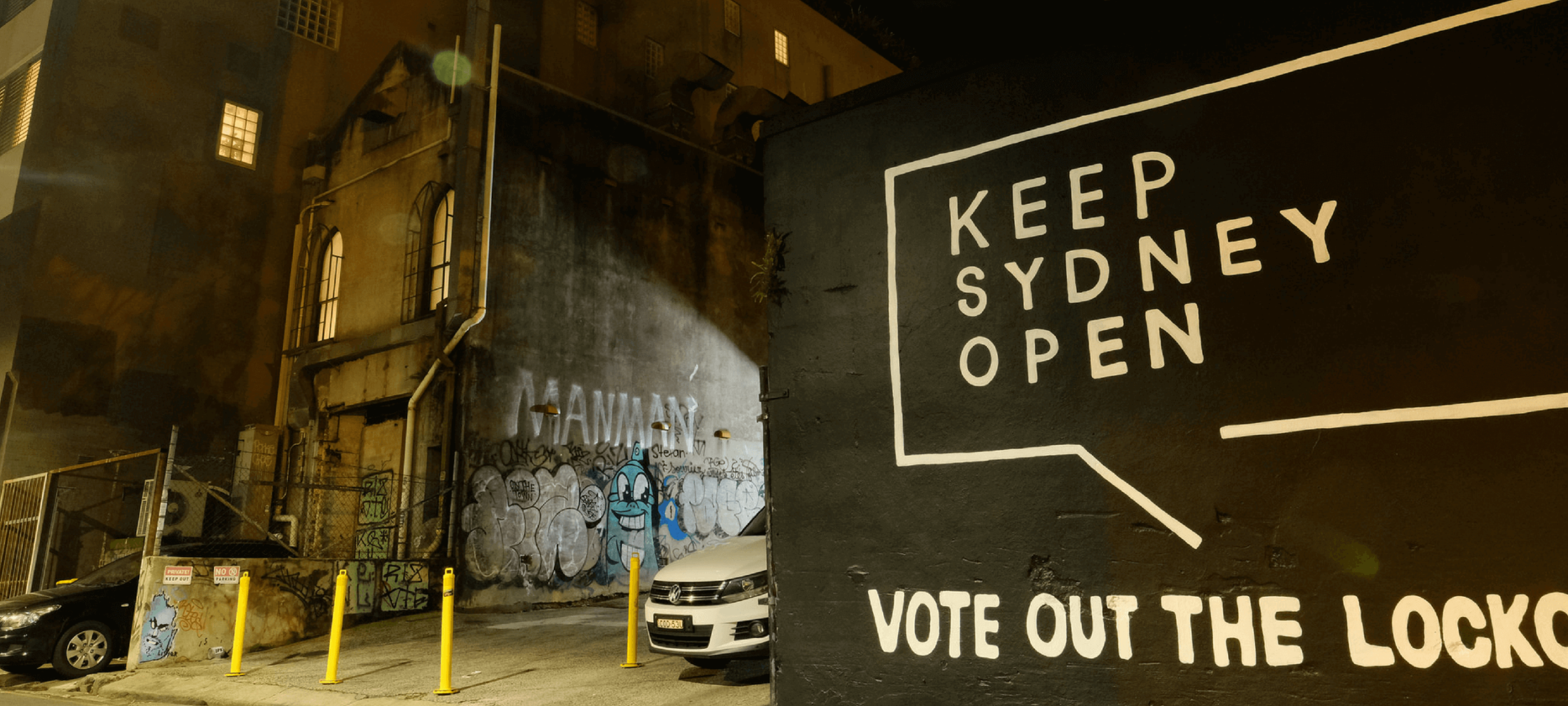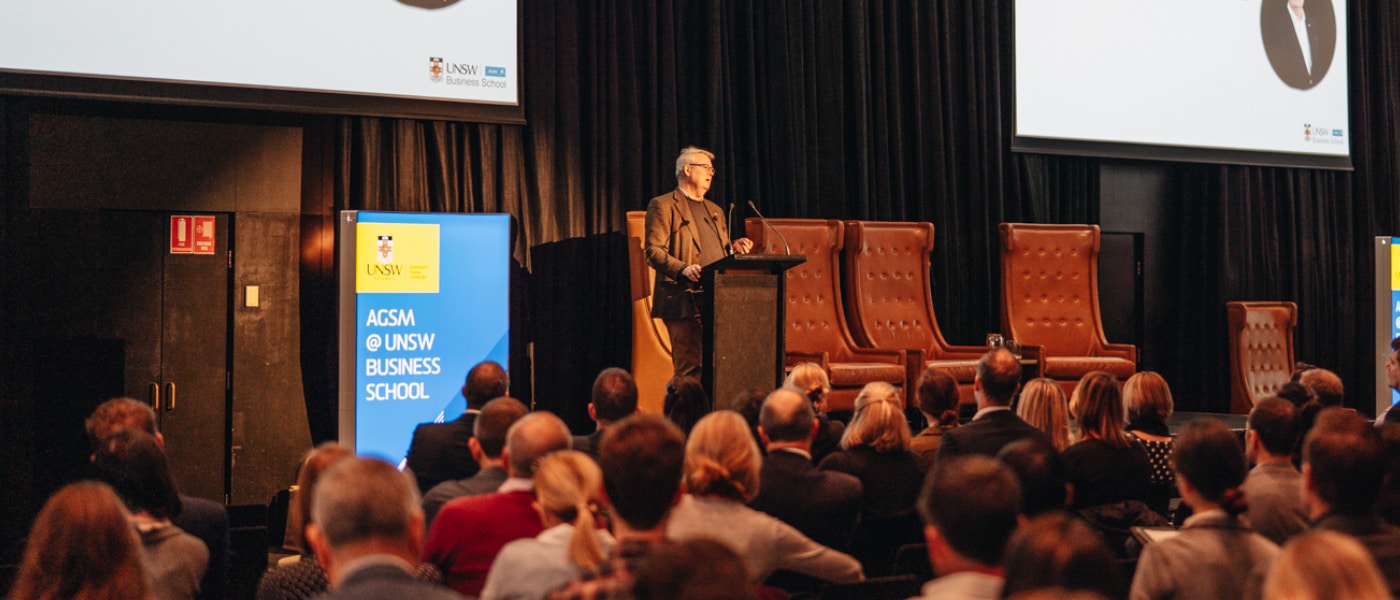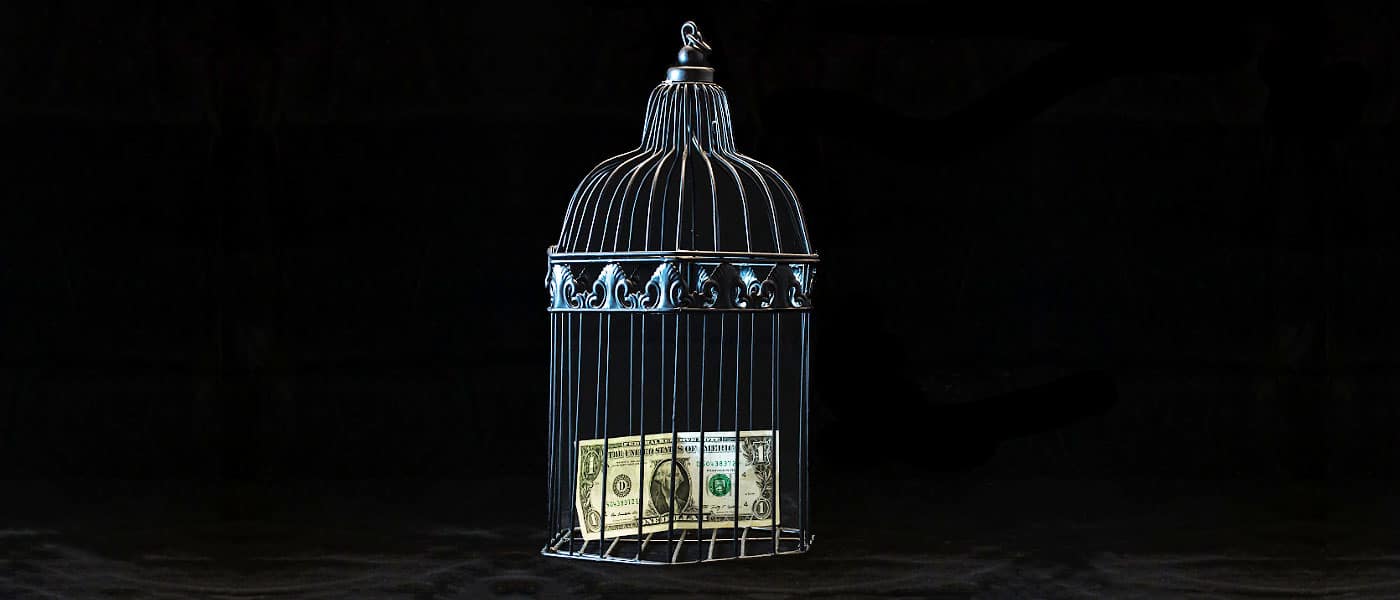United Airlines shows it’s time to reframe the conversation about ethics

United Airlines shows it’s time to reframe the conversation about ethics
Opinion + AnalysisBusiness + Leadership
BY Matthew Beard The Ethics Centre 5 MAY 2017
Have you ever felt like the kind of person who people always go to for advice but never invite out for drinks?
It’s not a lot of fun being the friend they turn to in bad times and the one they forget to call when the going’s good.
Imagine how ethicists feel.
Most people think of ethics when something goes awry, when people don’t know what to do or when someone’s done the wrong thing. Just like the advice-giving friend, ethicists are useful when stuff’s gone wrong but they’re also worth chatting to when things are going well.
It’s true, ethics – and ethicists – helps in those kinds of situations. But the association between ethics and negative circumstances is restrictive. It prevents people from looking for ethical issues before circumstances force them to do so.
This isn’t a campaign for an ‘International Hug an Ethicist Day’ (although it’d be nice). We just want to show how ethics can create meaning and value in the world.
Take the case of United Airlines. Dr David Dao was dragged off an overbooked flight after refusing to give up his seat. United offered hotel rooms and cash to encourage people to volunteer their spot but nobody took the bait. Dao and three other passengers were then randomly chosen and reassigned to another flight.
You don’t need to wait for something to go wrong to check whether you’ve got your ethical house in order.
Dao claimed he had patients to see the next day and refused to move. Video footage emerged of officers dragging him off the plane with a bloodied face. As it turns out, the reason United had to remove passengers was to create space for their own employees.
The reaction was huge. #BoycottUnitedAirlines trended on Twitter and United lost $1.4 billion dollars in share value.
After initially standing firm, United CEO Oscar Munoz apologised on behalf of the airline. The two parties reached a legal settlement. Policies were changed to ensure this wouldn’t happen again. Not long afterward, Munoz sent an email to customers, explaining how it had happened:
It happened because our corporate policies were placed ahead of our shared values. Our procedures got in the way of our employees doing what they know is right.
This isn’t uncommon. Indeed, it’s a danger many organisations and people risk falling into. That United have reached this conclusion and acknowledged it publicly is a step in the right direction.
What is unfortunate is that it took such an unpleasant and commercially damaging incident – not to mention Dao’s suffering – for them to get here. You don’t need to wait for something to go wrong to check whether you’ve got your ethical house in order.
Those who think proactively about ethics are more able to anticipate and overcome challenges. They create a culture where employees regularly flex their ‘ethical muscles’ and are given the freedom to do so.
Engaging in ethics is a proactive process. It’s about identifying what you stand for, what you want to achieve and the right way to do it. At least, it can be.
Instead, it’s often invoked reactively, trying to identify what went wrong and how it can be avoided in the future.
Prevention is better than a cure. Those who think proactively about ethics are better able to anticipate and overcome challenges. They create a culture where employees regularly flex their ‘ethical muscles’ and are given the freedom to do so. Instead of deferring to abstract policies, they’re able to use their judgement to do what’s right according to what the organisation stands for.
This is important considering United’s response. Munoz emphasises the steps United have taken to change their policies to prevent anyone from being thrown off a flight again. But he said the heavy role of company rules was the problem to begin with, saying “our corporate policies were placed ahead of our shared values”.
It’s tempting to think the solution to ethical failure is more rules and stricter codes of conduct. While it’s true sometimes bad policy will be responsible for unethical behaviour, oftentimes more rules can make the problem worse.
Rulebooks are external tools for regulating behaviour. Even though people might be doing the right thing, their capacity to reflect on how they should live can diminish because their ‘ethical muscles’ aren’t strong. Rules and policies can relieve you from thinking about what to do because you can just follow orders and do it.
Our executive director Simon Longstaff explains this with an analogy. If you put someone in a full plaster cast, they’ll stand up straight. However, inside the cast their body will become weaker and weaker until they can’t stand up on their own. Eventually, when the cast comes off or is damaged, they’ll crumple in a heap.
All of this reveals the need to reframe the way we think about ethics. Instead of being about stopping what’s bad, think of it as creating something good.
Relying only on policies to govern behaviour has a similar unintentional weakening effect. Longstaff explains such a system increases risk to itself by reducing the capacity of any single actor to make good decisions when the things are working exactly as they should.
All of this reveals the need to reframe the way we think about ethics. Instead of being about stopping what’s bad, think of it as creating something good.
Encouragingly, there is some evidence United are moving in this direction. As well as acknowledging the need to prevent similar failures in future, Munoz takes the time to imagine a more proactive, ethical role for United:
I believe we must go further in redefining what United’s corporate citizenship looks like in our society. If our chief good as a company is only getting you to and from your destination, that would show a lack of moral imagination on our part. You can and ought to expect more from us, and we intend to live up to those higher expectations in the way we embody social responsibility and civic leadership everywhere we operate.
Of course, as with any commitment to ethical change, words must be followed with action. Yet these sentiments signify a possible shift in the way United thinks about ethics itself. Not only as a way of avoiding bad decisions but as a way of imagining and creating a better organisation and contributing to a better world.
Ethics in your inbox.
Get the latest inspiration, intelligence, events & more.
By signing up you agree to our privacy policy
You might be interested in…
Opinion + Analysis
Business + Leadership, Relationships
The role of the ethical leader in an accelerating world
Opinion + Analysis
Business + Leadership, Relationships
Can you incentivise ethical behaviour?
Opinion + Analysis
Business + Leadership, Science + Technology
Is it ok to use data for good?
Opinion + Analysis
Business + Leadership
How avoiding shadow values can help change your organisational culture
BY Matthew Beard
Matt is a moral philosopher with a background in applied and military ethics. In 2016, Matt won the Australasian Association of Philosophy prize for media engagement. Formerly a fellow at The Ethics Centre, Matt is currently host on ABC’s Short & Curly podcast and the Vincent Fairfax Fellowship Program Director.
BY The Ethics Centre
The Ethics Centre is a not-for-profit organisation developing innovative programs, services and experiences, designed to bring ethics to the centre of professional and personal life.
Doing good for the right reasons: AMP Capital's ethical foundations

Doing good for the right reasons: AMP Capital’s ethical foundations
Opinion + AnalysisBusiness + Leadership
BY Simon Longstaff ethics 21 MAR 2017
Discover the ethical processes behind AMP Capital’s tobacco divestment. There are three years of thinking behind those headlines, explains Simon Longstaff. He was there to help them through.
You may have seen that AMP Capital decided to divest from tobacco and munitions. The organisation will sell A$440 million of tobacco investments and a further A$130 million in cluster munitions and landmines.
Although this is big news, it isn’t the first time a divestment like this has happened in Australia. What makes this news more significant is AMP Capital’s decision hasn’t come from traditional divestment strategies like shareholder activism or social protest. Instead, it is the product of a much larger process of ethical reflection.
This reflection started three years ago, when AMP Capital approached me, wanting to set its entire investment portfolio on a solid ethical foundation. Together, we sought to discover what that foundation might be.
What we learned surprised us. At first, we thought ‘fiduciary duty’ would be the main issue – AMP Capital’s duty to act in the best interests of its investors. AMP Capital is totally committed to discharging this obligation.
However, it turns out that there was another equally important issue – one that is for the most part ignored.
It concerns AMP Capital itself. Is it driven entirely by the ethics of others, washing its hands of all ethical responsibility? Or does AMP Capital have a right to set the ethical boundaries within which it offers its goods and services in the expectation of reward?
We concluded that just as a person can decide not to do something that goes against their conscience, so can a business.
Once we’d agreed on this basic idea, AMP Capital was able to build an ethical investment foundation based on a few core principles that we believed to be self-evident and so firmly grounded as to be uncontroversial. They are:
- No investment may be made if it leads to or supports conduct that violates the principle of ‘respect for persons’. AMP Capital will not invest in entities or activities that undermine fundamental human dignity, like those that treat people merely as a tool for some other end.
- AMP Capital will not enable – or seek to profit from – activities that violate international human rights law.
- AMP Capital will actively consider the extent to which its investments are in entities or products that cause harm. The relevant test is this – to what extent (if any) can this product be used without causing harm to the user or others?
- In assessing harm, AMP Capital will seek to determine the extent any harm is an inescapable side-effect of doing something good. If harm is inescapable, are the adverse side-effects mitigated to the greatest extent possible?
- AMP Capital will have regard to issues of ‘materiality’ – are the ethically problematic issues central to the investment being considered? AMP Capital will also bear in mind whether engagement with a company might be a better route to achieving a positive ethical outcome.
- AMP Capital will be open to being corrected if they’re mistaken about any of the facts or assumptions that have a bearing on deciding if a company’s conduct or products are harmful.
This framework can be applied to any situation. Regardless of the product or moment, it gives a strong ethical foundation for all the choices the company might make in the future.
Good foundations are something that every company needs. If embedded and practiced, they can reassure employees and customers that business choices are based on ethical reflection rather than the pressure of public opinion or the pursuit of profits at all cost. And they bring consistency and confidence to ethical decisions.
I’m very proud to have worked with AMP Capital on developing this framework. I hope it helps them and inspires others to do the same.
MOST POPULAR
ArticleBeing Human
Philosophy must (and can) thrive outside universities
ArticleBeing Human
Ozi Batla: Fatherhood is the hardest work I’ve ever done
ArticleHEALTH + WELLBEING
Parent planning – we should be allowed to choose our children’s sex
BY Simon Longstaff
Simon Longstaff began his working life on Groote Eylandt in the Northern Territory of Australia. He is proud of his kinship ties to the Anindilyakwa people. After a period studying law in Sydney and teaching in Tasmania, he pursued postgraduate studies as a Member of Magdalene College, Cambridge. In 1991, Simon commenced his work as the first Executive Director of The Ethics Centre. In 2013, he was made an officer of the Order of Australia (AO) for “distinguished service to the community through the promotion of ethical standards in governance and business, to improving corporate responsibility, and to philosophy.” Simon is an Adjunct Professor of the Australian Graduate School of Management at UNSW, a Fellow of CPA Australia, the Royal Society of NSW and the Australian Risk Policy Institute.
BY ethics
Tips on how to find meaningful work

Tips on how to find meaningful work
Opinion + AnalysisBusiness + LeadershipHealth + Wellbeing
BY The Ethics Centre 1 MAR 2017
“Find a job you’ll love and you’ll never work a day in your life!” There are different claims about who coined this phrase but it’s stood the test of time. Like most one-liners, it’s easier said than done.
Most people need two things from their work. They need to earn enough to support all the other areas of their life and they need to feel dignified while doing it. Neither is an easy find.
We tend to know how much income we need but a sense of dignity and meaning can be elusive. You might want creative output, a good work/life balance or a sense of achievement earned through a ‘hard day’s work’. It’s easier to know what kind of work will suit you if you’ve taken Socrates’ advice: know thyself.
Still, insights from philosophy and psychology can help us spot some of the things that tend to give people a sense of meaning in their jobs.
You’ve gotta want it
This is the basic idea behind the ‘find a job you love’ proverb. If you’re doing something you enjoy, it won’t feel like a chore. If you’re motivated by income, prestige or something external, it will be hard to find the work itself fulfilling.
The philosopher Bernard Williams distinguishes ‘internal’ and ‘external’ motivations. We have an external motivation to do something if it would be good for us to do it, whether we want to or not. Internal motivations are things we personally want to do.
For example, if we’re sick, it is good for us to take medicine – that’s an external motivation. If we actually want to get better, we’ve also got an internal motivation. If we want a few more days off work, there’s no internal motive to get better, even though being healthy is better than being sick, generally speaking.
Williams thought external motivations alone couldn’t make us do something. We need some internal motivators to get us off the couch. Williams might not be right. Lots of people probably show up to work because they need to make ends meet but there’s still a lesson in his distinction. Salaries, prestige or fringe benefits won’t be enough to give us a lasting sense of meaning – we need to feel personally engaged with what we’re doing.
Look beyond official duties
Sometimes the core activities of our work won’t give us internal motivation. It might be some unofficial role our job enables us to fulfil.
Psychologist Barry Schwartz uses the example of Luke, a hospital janitor (his official title was “hospital custodian”). It’s unlikely Luke wakes up passionate about working light bulbs and shiny urinals. He found meaning in the parts of his work that extended beyond his official duties:
“The researchers asked the custodians to talk about their jobs, and the custodians began to tell them stories about what they did. Luke’s stories told them that his “official” duties were only one part of his real job, and that another central part of his job was to make the patients and their families feel comfortable, to cheer them up when they were down, to encourage them and divert them from their pain and fear, and to give them a willing ear if they felt like talking.”
The meaningful work Luke performed sat outside he things the hospital paid him for. Despite this, it still gave him enough satisfaction to keep showing up.
See your role in the bigger picture
Hospital janitors are a font of wisdom. Schwartz also describes how Ben and Corey, also janitors, found meaning. They recognised their role within the broader purpose of the hospital – to provide care for people who need it:
“Luke, Ben, and Corey were not generic custodians. They were hospital custodians. They saw themselves as playing an important role in an institution whose aim is to see to the care and welfare of patients.”
They would stop mopping floors if patients were walking the corridors for rehab or hold off from vacuuming when family were sleeping in the patient lounge. They weren’t just keeping things tidy and in working order. In a hospital, cleanliness staves off infection and can save lives. The context and purpose of their work gave it new meaning.
Find space for choice
Peter Cochrane, entrepreneur and technologist, thinks many jobs are taking what’s human out of their human employees. In the documentary The Future of Work and Death, he says, “When I go into companies I often ask the question, ‘Why are you employing people? You could get monkeys or robots to do this job.’ The people are not allowed to think – they are processing. They’re just like a machine.”
At an absolute minimum, feeling dignified at work means feeling like our humanity is being recognised. We want to be treated as people, not things. It’s important we find spaces in our work where we can be autonomous: making decisions for ourselves, exercising our creativity and asserting our ability to think freely.
It’s not a perfect fix
We must acknowledge the limitations of this advice. Our basic needs for food, housing, and the rest require many of us to persevere with work we find undignifying or meaningless.
But if you’re lucky enough to enjoy some choice in where you work and are unhappy in your current role, take a second to think – are you missing one of the above? At least you’ll know what to look for next time!
Ethics in your inbox.
Get the latest inspiration, intelligence, events & more.
By signing up you agree to our privacy policy
You might be interested in…
Opinion + Analysis
Business + Leadership
The sponsorship dilemma: How to decide if the money is worth it
Opinion + Analysis
Business + Leadership, Health + Wellbeing
David Pocock’s rugby prowess and social activism is born of virtue
Opinion + Analysis
Health + Wellbeing
Defining mental illness – what is normal anyway?
Opinion + Analysis
Business + Leadership
In the court of public opinion, consistency matters most
BY The Ethics Centre
The Ethics Centre is a not-for-profit organisation developing innovative programs, services and experiences, designed to bring ethics to the centre of professional and personal life.
Risky business: lockout laws, sharks, and media bias

Risky business: lockout laws, sharks, and media bias
Opinion + AnalysisBusiness + Leadership
BY Jack Hume The Ethics Centre 8 DEC 2016
The New South Wales lockout laws were introduced in early 2014 in the wake of a great tragedy – the loss of human life to alcohol-fuelled violence.
Following the recommendations of an independent inquiry by Ian Callinan QC in 2016, the government decided to soften them. It shows that when we legislate in the wake of a tragedy, our judgement can be reactive. In the future, let’s measure our reactions against evidence.
When lockout laws were introduced in Sydney, alcohol related violence was on a downward trend. Even if people were afraid of becoming victims of violence, they were actually less likely to be attacked than in the past.
There is something to be learned from reflecting on the climate in which these laws were passed. We should be thinking about risks in terms of their likelihood, not in terms of how much we fear them. But that’s very hard, as we can see with another example – shark attacks.
People overestimate the likelihood of a shark attack in the same way they do other events they seriously fear, like terrorism and natural disasters. A study on Australian perception of sharks found that Sydneysiders believe shark attacks occur twice as often as they actually do, and fatal ones four times as often.
“Exposure to television media depicting violence and crime leads to a substantial rise in how often people believe they occur. This effect is particularly strong for vivid images.”
This isn’t surprising. Research tells us we believe things are more likely to occur if we can easily call to mind examples of when they’ve occurred. And disturbing examples are easier to recall. The process of judging the probability of an event by how easy we find it to think of examples is known as the availability heuristic.
Emotional information is easier to remember, and so the availability heuristic has an interesting relationship with news coverage. Emotional news content prompts our attention, invariably placing demands on further coverage, which we will remember more easily.
News media is highly responsive to issues its audiences are interested in, and as a result those issues get more coverage. This pulls people into a feedback loop whereby their demands for further coverage lead them to believe events are more probable than they really are.
“Passing legislation in a climate of fear is risky business and can deliver us further problems down the line.”
For example, exposure to television media depicting violence and crime leads to a substantial rise in how often people believe crimes occur. This effect is particularly strong for vivid images.
Knowing all this, we should expect people to overestimate the probability of events that provoke fear – violence, terrorism, plane crashes and natural disasters – particularly while they’re fresh in our memory. This effect is seen not just in how we speak and think about probability, but in how we act to protect ourselves, which brings us back to NSW policy.
Passing legislation in a climate of fear is risky business and can deliver us further problems down the line. Lockout laws are said to have been bad for Sydney’s culture and night-time economy. The public backlash forced the review that recommended loosening the reins of the lockout laws.
“Once news providers and their audience are responding only to one another without consideration for evidence or facts, the public’s ability to accurately judge risk has been seriously distorted.”
The point is not whether lockout laws are effective in decreasing the threat of violence (which they have been in Sydney CBD), but the conditions through which they came about. These included media coverage on disturbing and unusual events – in particular, ‘one-punch’ killings – which caused fear and demanded attention, plus a campaign to increase awareness.
When the media reports on disturbing and unusual events at the same time that campaigns are run to increase awareness for them, the basic ingredients for a feedback between news media and its audiences are met. Once news providers and their audiences are responding only to one another without consideration for evidence or facts, the public’s ability to accurately judge risk has been seriously distorted.
Shark nets are installed with the expectation of reducing the risk of shark attacks but they do this at the expense of marine life. They come as a response to the fact Australia has an above average incidence of shark attacks, which appear to be increasing. But let’s put this in perspective – the risk posed by sharks is still extremely low, accounting for two deaths in 2016 and one death in 2017.
The availability heuristic has unconscious components. Usually, people aren’t aware they’re estimating probability based on their fallible and selective memory. When people are unaware of how emotions, personal experiences and exposure to similar events can affect their judgements, they make unconsciously biased decisions.
Without appropriate consideration, people are at risk of basing important decisions on forces they aren’t consciously aware of. They may be led to support invasive or expensive regulations to protect themselves from risks that are highly unlikely. Where these regulations have undesirable side effects, like marine animal deaths, cultural damages to nightlife or the closure of businesses, this can mean real consequences for unreal problems.
Ethics in your inbox.
Get the latest inspiration, intelligence, events & more.
By signing up you agree to our privacy policy
You might be interested in…
Opinion + Analysis
Business + Leadership
Hindsight: James Hardie, 20 years on
Opinion + Analysis
Health + Wellbeing, Business + Leadership
The ethical dilemma of the 4-day work week
Opinion + Analysis
Business + Leadership
Perils of an unforgiving workplace
Opinion + Analysis
Business + Leadership
Are diversity and inclusion the bedrock of a sound culture?
BY Jack Hume
Jack studied Philosophy and Psychology at the University of Sydney, completing his Bachelor of Arts in 2017 with First Class Honours. He has supported The Ethics Centre's Advice & Education team in research capacities over the last two years, contributing to their work on cognitive bias in decision making, and ethics education in financial services. In 2018, he joined the Centre full-time as a Graduate Consultant. He brings insights from contemporary political philosophy, moral psychology and skills in qualitative research to consulting projects across a variety of sectors.
BY The Ethics Centre
The Ethics Centre is a not-for-profit organisation developing innovative programs, services and experiences, designed to bring ethics to the centre of professional and personal life.
Despite codes of conduct, unethical behaviour happens: why bother?

Despite codes of conduct, unethical behaviour happens: why bother?
Opinion + AnalysisBusiness + Leadership
BY Ed St John The Ethics Centre 1 NOV 2016
Like stationery cupboards and monthly accounts, codes of conduct are one of those necessities of life in any business.
Whether you’re a small or medium enterprise or a large and complex organisation spread across multiple locations, a code of conduct sets the benchmark of expectation for the behaviour of your workforce.
Codes of conduct take many forms. Some are exceptionally long – a phone book of Policies and Procedures which attempt to anticipate every possible scenario and explicitly forbid the worst category of behaviour from the least reliable employee. Others are short and elegant, placing maximum trust in the maturity and honesty of the workforce.
Some are designed as a trap – if you break any of these rules, we’ll have an excuse to terminate your employment. Others are designed as an invitation – do the right thing by us, and we’ll do the right thing by you.
Some codes are complex by necessity, reflecting the strict compliance regimes of highly regulated industries such as financial services or medicine. Others are loose and relaxed, reflecting the new-age approaches to work pioneered in Silicon Valley over the past decade. Work when and where you like, do no harm, enjoy the free lunch.
In a world of extremes, we’ve all seen attempts at over-regulation (the five-page working from home checklist, for example) and we’ve all drooled over the progressive policies of companies such as Netflix, which offers its employees unlimited leave, amongst other things. Their five word expense policy (“act in Netflix’s best interests”) is the gold standard for a new type of policy that treats employees like adults.
In designing a code – no matter what you call it and what it looks like – it’s worth remembering two important things. First: a code will only work if it is founded in a sound statement of the organisation’s purpose, values and principles (what we call the Ethical Framework). Second: no code can replace active hands-on management of your culture and your people.
An ethical framework expresses fundamental principles that that help guide us through terrain where no rule is in place or where matters are genuinely unclear. This is a critical foundation document for any organisation – it is, quite literally, what we believe in and what standards we uphold. It must be consistently embraced by every member of the organisation in order to be effective.
An ethical framework demands something more than mere compliance. It asks employees to exercise judgement and accept personal responsibility for the decisions they make.
A well drafted code of conduct will be consistent with the framework, but it will provide much more specific guidance. For example, where your ethical framework espouses values such as transparency and accountability, the code of conduct might explicitly spell out the conflict of interest policy or the rules surrounding gifts and benefits.
Ethical frameworks and codes of conduct are not magic bullets to solve an organisation’s problems. The fact a company has created these documents will not guarantee that all employees will do the right thing every time. But approached with the proper degree of care and sophistication, the very process of developing these codes can have a profoundly positive effect on the culture of an enterprise.
In establishing the things you believe in and identifying the behaviours you wish to encourage, you establish a framework for a great corporate culture – one based on respect, trust, collaboration and accountability. And who wouldn’t want that?
Ethics in your inbox.
Get the latest inspiration, intelligence, events & more.
By signing up you agree to our privacy policy
You might be interested in…
Opinion + Analysis
Business + Leadership, Politics + Human Rights
Australia’s fiscal debt will cost Gen Z’s future
Opinion + Analysis
Business + Leadership, Health + Wellbeing, Society + Culture
Corruption in sport: From the playing field to the field of ethics
Opinion + Analysis
Business + Leadership, Politics + Human Rights
Hunger won’t end by donating food waste to charity
Opinion + Analysis
Business + Leadership
What are millennials looking for at work?
BY Ed St John
Ed joined The Ethics Centre as Executive General Manager in 2014 after a career in the interconnected worlds of marketing, communications, entertainment and live events. His diverse roles include editor of Rolling Stone Magazine, TV producer, talent consultant to The Voice and X Factor, Twitter executive, CEO of Warner Music, Managing Director of BMG Music, Chairman of ARIA and CEO of Renovating For Profit. Throughout his career, Ed has experienced a range of ethical dilemmas and is cherishing his role where enabling good decision making is his core work, helping original thinking and lively public debate flourish.
BY The Ethics Centre
The Ethics Centre is a not-for-profit organisation developing innovative programs, services and experiences, designed to bring ethics to the centre of professional and personal life.
Workplace ethics frameworks

A placard used to hang in the office of Milton Hershey, founder of the revolutionary chocolate company carrying a simple motto: “Business is a matter of human service”.
Hershey shaped his organisation around a progressive, generous employment model. In a time when corporate leaders were seen as villains and Theodore Roosevelt won the White House election on the promise of breaking up monopolies and regulating business more firmly, Hershey’s was seen by many as a model of responsible, prosocial business.
At the same time, Cadbury in the UK were making similar moves. Each company built a fully-serviced town for their employees, offered children an education, taking responsibility for supply chains, and gave the public tours of the facilities.
In Connect: How Companies Succeed by Engaging Radically with Society, John Browne suggests the companies “identified the potency of a corporate vision delivered through employees” – a message which is “as true today as it was in 1900”. Who said chocolate wasn’t good for us?
Today, we’d recognise elements of their activity – firm social purpose and activity driven by value rather than profit – as elements of an ethics framework, a central, defining expression of what a company believes in and seeks to uphold.
Ethics frameworks consist of three things: a purpose statement, values and principles.
They aren’t documents to be filed away or popped in a corner of the company website, never to be read. Writing a document about who we are and what we stand for means nothing unless those statements are lived and breathed in the company operation.
Like the confectioners of the early 20th century, the very best companies bring cohesion to their business decisions by showing staff the meaning of their values, purpose and principles. They work with them to show how these core ideals guide everyday business decision making.
Purpose statements can be long or short. They usually don’t focus on products or services but how, as Hershey recognised, your company is satisfying a community need.
Values and principles enable employees to distinguish between good and bad decisions. They help to frame business activity to ensure it stays true to its purpose and contract with society.
Together these form your ethics framework: the bedrock or ‘DNA’ of your organisation. A good framework will be:
- Practical – able to be applied in practice and with consistency.
- Authentic – it will ‘ring true’.
- Stable – will not change much (in its essence) over the long term.
- Understandable – by all of those required to apply it in practice.
Having an ethics framework isn’t designed to maximise profits. It’s designed to protect and improve the relationship between business and society – but it does often benefit the business as a commercial enterprise as well. By motivating employees and demonstrating the value and purpose of the business to them, they serve as ambassadors for your organisation.
What’s more, trusted organisations are more likely to survive the instances when they fall foul of public opinion. In 1909, Cadbury – until then widely respected – were accused of being involved in slave labour in Portugal. Despite the public outcry, Cadbury were able to survive the incident and restore their reputation because of the goodwill they’d earned through authentically living their ethics framework.
Although purpose statements, corporate values and organisational principles aren’t a guarantee of perfect ethical conduct, they are a crucial ingredient in building a culture in which bad behaviour is discouraged and dis-incentivised – and a flag of goodwill to stakeholders that your organisation is looking to serve humanity and not just turn a quick buck.
Ethics in your inbox.
Get the latest inspiration, intelligence, events & more.
By signing up you agree to our privacy policy
You might be interested in…
Opinion + Analysis
Business + Leadership
Leaders, be the change you want to see.
Opinion + Analysis
Business + Leadership
Our economy needs Australians to trust more. How should we do it?
Opinion + Analysis
Business + Leadership, Politics + Human Rights
Who’s afraid of the strongman?
Opinion + Analysis
Business + Leadership
The role of ethics in commercial and professional relationships
BY The Ethics Centre
The Ethics Centre is a not-for-profit organisation developing innovative programs, services and experiences, designed to bring ethics to the centre of professional and personal life.
Corporate tax avoidance: you pay, why won’t they?

Corporate tax avoidance: you pay, why won’t they?
Opinion + AnalysisBusiness + Leadership
BY Philippa Foster Back The Ethics Centre 25 OCT 2016
What do Apple and Virgin Australia have in common with Donald Trump? Spoiler: it’s not their charismatic leadership.
All three have – alongside a huge range of other companies and individuals – been accused of paying less in taxes than they should have. Whether or not this “makes them smart” or breaks the law, many people feel the practice shows businesses failing to meet their obligations to broader society.
Whether this is true or not depends on an important, subtle distinction between ‘tax planning’ and ‘tax avoidance’.
Responsible companies will seek to minimise their liability through good planning – making the most of the tools and mechanisms government provides: allowances, deductions, rebates and so on.
This is different from tax avoidance. Although legal, when financial instruments are exploited to provide tax advantages they weren’t designed to create, companies can obey the letter of the law while simultaneously undermining its spirit.
The behaviour can also be seen as aggressive – for instance, in the use of overseas tax havens.
Unlike tax evasion, avoiding tax and bending the rules of the tax system is not illegal. However, that doesn’t mean it’s entirely ethical.
Tax as a social responsibility
At a time when government spending cuts are having a real impact on the everyday lives of people, how can multinational corporations justify avoiding paying their fair share of taxes?
A 2015 survey by the Institute of Business Ethics and Ipsos MORI found the British public think tax avoidance is the most important ethics issue for business to address. Avoiding tax is avoiding a social obligation. In the UK, companies such as Apple, Starbucks and Amazon were vilified and boycotted for their tax policies. Tax avoidance can make a company vulnerable to accusations of greed and selfishness, damaging its reputation and destroying the public’s trust.
Paying a ‘fair’ amount of tax in the countries in which they operate is seen as the socially responsible thing for companies to do. Taxes provide the funds for public services such as healthcare, education and public investment in infrastructure – services that companies benefit from directly and indirectly.
Tax planning arrangements that go beyond the policy intent of the law and involve deliberate approaches to exploit the tax system are not ethical. It’s as simple as that.
For this reason, tax avoidance has been branded by some as an immoral and unethical practice that undermines the very integrity of the tax system.
However, company directors see their responsibility as being to maximise the value they deliver for their shareholders. This includes keeping tax costs to a legally permitted minimum. They might also point out the various other ways businesses contribute to the economy: employee and employer contributions, business rates, sales taxes and building sustainable businesses for employment.
Fairness
Remember, corporation tax is a tax on profits. If a company makes no profits, it can’t and shouldn’t be taxed on them. The issue is whether the profits are calculated correctly. There’s a difference between sales and profits – a company might have high sales but still not be turning a profit. But in these cases we would be wise to question how those profits were calculated.
Tax policies should be underpinned by the guiding ethical principles of accountability, transparency and consistency. Tax planning arrangements that go beyond the policy intent of the law and involve deliberate approaches to exploit the tax system are not ethical. It’s as simple as that.
Rather than hiding behind the business case for tax avoidance, businesses need to be transparent about their tax planning.
The public expects businesses to pay their ‘fair share’ of tax but what is a ‘fair’ amount is subjective. What businesses most want out of a tax system is certainty – they want to know what their tax bills will be so they can plan their strategy and investments accordingly.
So if the tax planning industry were able to obtain official clearance for any new tax avoidance scheme, it would be able to operate with confidence that its activities were considered fair according to the standards of government. This would provide it with the confidence and foresight it requires, as well as helping give citizens a clear understanding of what measures are permitted and why.
Striking a balance
Arguments for and against tax avoidance are missing the point. Politically, it might be too difficult to argue that companies pay more tax, but government and business should ensure that corporate tax contributions make a fair return to society.
Rather than hiding behind ‘the business case for tax avoidance’, businesses need to be transparent about their tax planning. Both companies and government need to pay more attention to openly communicating their position on taxation and their interpretation of tax law. This would both restore public trust in business and provide more certainty for those trying to manage their tax requirements.
Ethics in your inbox.
Get the latest inspiration, intelligence, events & more.
By signing up you agree to our privacy policy
You might be interested in…
Opinion + Analysis
Business + Leadership
The dark side of the Australian workplace
Explainer
Business + Leadership, Politics + Human Rights
Ethics Explainer: Universal Basic Income
Opinion + Analysis
Business + Leadership
Ready or not – the future is coming
Opinion + Analysis
Business + Leadership, Science + Technology
Is it ok to use data for good?
BY The Ethics Centre
The Ethics Centre is a not-for-profit organisation developing innovative programs, services and experiences, designed to bring ethics to the centre of professional and personal life.
Unconscious bias: we’re blind to our own prejudice

Unconscious bias: we’re blind to our own prejudice
Opinion + AnalysisBusiness + LeadershipRelationships
BY Jack Hume The Ethics Centre 28 SEP 2016
For the most part, we respect our colleagues and probably wouldn’t ever label them ‘sexist’ and certainly not ‘racist’. But gender and ethnic diversity in workplaces shows something is amiss.
Women fare worse than men across most measures of workforce equity. The Australian Government’s Gender Equality Agency report notes women who work full-time earn 16 percent less per week than men, constitute 14 percent of chair positions, 24 percent of directorships and 15 percent of CEO positions.
Women lose at both ends of the career lifecycle. Their average graduate salaries are 9 percent less than their male equivalents’ and their average superannuation balances 53 percent less.
Sociology, psychology and gender and cultural studies have all weighed in on the multiple causes of these inequalities, with much of the conversation converging around the role of ‘unconscious bias’ in decision-making.
Applicants with Indigenous, Chinese, Italian and Middle Eastern sounding names were seen to be systematically less likely to get callbacks than those with Anglo-Saxon names.
Studies in which people are asked to evaluate the capabilities and aptitudes of a job candidate show effects of implicit biases on job assessment. In a study mimicking hiring procedures for math related jobs, male candidates fared so much better than women that lower-performing males were chosen over better female candidates.
Similar effects have been seen with regard to race. In Australia, applicants with Indigenous, Chinese, Italian and Middle Eastern sounding names were less likely to get callbacks than those with Anglo-Saxon sounding names.
When biases become socially reinforced, individuals can come to see them as ‘reality’. Studies have shown women tend to believe they are worse at math than men and this belief has a negative impact on their performance.
In one study, a group of women were asked their gender prior to math tests and performed worse than the group who weren’t asked to disclose it. This phenomenon is called the ‘stereotype threat’ and it extends to racial beliefs. Two decades ago, a landmark study found that asking students of colour to identify their ethnicity prior to a test resulted in a substantially poorer grade.
This evidence suggests human resource departments might consider adopting hiring procedures that don’t require race, gender or even an applicant’s name be stated. Of course, at some point, the candidate will need a face-to-face interview, so this isn’t a perfect solution to bias- but it does reduce its influence.
Volunteering to learn more about diversity signifies a more general willingness to open organisational culture to people from different backgrounds.
Alongside systematic and procedural changes, we can help cultivate organisational willingness to combat inequality through diversity training. These training programs rose to prominence around a decade ago as a result of a wave of lawsuits against major US companies. However, as Frank Dobbin and Alexandra Kalev explained in an article for the Harvard Business Review, they were dazzlingly unsuccessful — resulting in negative outcomes for Asians and Black women, whose representation dropped an average of five and nine percent, respectively.
Dobbin and Kalev suggest the major reason these programs failed is probably because they were usually mandatory. This suggests they were motivated more by risk aversion — ‘discriminate and you’ll be fired’ — than a genuinely held belief diversity is valuable. It’s not surprising systematic change didn’t occur under such conditions.
At the same time, companies who used voluntary diversity programs saw increases in black, Asian and Hispanic representation – even as the average was decreasing nationwide. Volunteering is most likely motivated by a belief that diversity is genuinely valuable — factors that seem far more effective in influencing workplace diversity, perhaps because they are genuine.
Science is yet to tell us whether we can actually reduce biases let alone erase them altogether. All the same, we can begin to mend workplace inequalities by actively engaging peoples’ will to change.
Ethics in your inbox.
Get the latest inspiration, intelligence, events & more.
By signing up you agree to our privacy policy
You might be interested in…
WATCH
Relationships
Moral intuition and ethical judgement
Opinion + Analysis
Business + Leadership, Health + Wellbeing
Your donation is only as good as the charity you give it to
READ
Business + Leadership
Meet James Shipton, our new Fellow uncovering the ethics of regulation
Opinion + Analysis
Society + Culture, Relationships
Where is the emotionally sensitive art for young men?
BY Jack Hume
Jack studied Philosophy and Psychology at the University of Sydney, completing his Bachelor of Arts in 2017 with First Class Honours. He has supported The Ethics Centre's Advice & Education team in research capacities over the last two years, contributing to their work on cognitive bias in decision making, and ethics education in financial services. In 2018, he joined the Centre full-time as a Graduate Consultant. He brings insights from contemporary political philosophy, moral psychology and skills in qualitative research to consulting projects across a variety of sectors.
BY The Ethics Centre
The Ethics Centre is a not-for-profit organisation developing innovative programs, services and experiences, designed to bring ethics to the centre of professional and personal life.
5 dangerous ideas: Talking dirty politics, disruptive behaviour and death

5 dangerous ideas: Talking dirty politics, disruptive behaviour and death
Opinion + AnalysisBusiness + LeadershipScience + Technology
BY The Ethics Centre 1 SEP 2016
The Ethics Centre was the founding partner of the Festival of Dangerous Ideas back in 2009. We’re thrilled that the festival continues with a program full of world-leading thinkers.
Here are five ideas that were pondered, dissected and debated over the big weekend in 2016. We talked dirty politics, disruptive behaviour, disappearing countries and death.
-
Dirty politics
In 2016, the festival put dirty old politics in the spotlight. Australia’s federal parliament had just resumed session with a bunch of independent and minority party representatives, the United States was still trying to make sense of Donald Trump and across the globe nations were trying to unpack exactly what ‘extremism’ was and how to deal with it.
“If our goal is to seek a deeper understanding of the world, our lack of moral diversity is going to make it harder.”
American psychologist Jonathan Haidt’s TED talk explores the moral values underpinning liberals and conservatives. Instead of looking at politics as a battleground of ‘right vs wrong’, Haidt encourages us to see political differences as being based in different moral values.
-
Disruptive behaviour
You can’t make an omelette without breaking a few eggs, right? For the disruptors of the world, improvement comes at a price – we need to break eggs, challenge convention, and occasionally hurt people’s feelings.
On the other side of the Pacific, the #BlackLivesMatter movement was upsetting middle-class, white Americans in 2016 by calling attention to continued racial disparities in the US.
Check out philosopher George Yancy’s open letter, ‘Dear White America’ to learn about the intellectual basis for the movement. In the letter, Yancy makes a simple but confronting point to his white American fellows – if you’re white, no matter how well intentioned you are, you’re probably racist. He wrote:
“If you are white, and you are reading this letter, I ask that you don’t run to seek shelter from your own racism. Don’t hide from your responsibility. Rather, begin, right now, to practice being vulnerable. Being neither a ‘good’ white person nor a liberal white person will get you off the proverbial hook.”
Yancy’s essay prompted exactly the response he expected – anger. So much so the American Philosophical Association issued a letter of support. You can read Yancy’s thoughts on the backlash he copped here.
Australians reading or hearing about the Black Lives Matter movement might also want to read into the history of Aboriginal deaths in custody.
-
Disappearing conflicts
Conflict, politics and geography drive some nations and communities to the brink while others flourish. What are the unseen consequences of major global trends?
The Right to be Cold asks whether the world’s failure to address climate change is a human rights violation against Inuit peoples whose way of life is being eradicated along with the melting ice.
To get a sense of what’s going on for these remote communities, check out photographer Ciril Jazbec’s series documenting climate change and its impact on Greenlanders.
“It was April and the ice was starting to melt, which was highly unusual. Usually the ice would stay out until June.”
-
Dealing in death
If evolution hardwires in us the drive to survive, how is it humans are able to overcome their biological imperative and take their own lives? There’s still a stigma that suicide is a ‘selfish choice’, but evolutionary biologist Jesse Bering explores the science behind suicide.
“Human suicide is an adaptive behavioural strategy that becomes increasingly likely to occur whenever there is a perfect storm of social, ecological, developmental and biological variables factoring into the evolutionary equation.”
For the scientifically minded, Bering’s essay in Scientific American is a must-read. If you’ve never donned a white lab coat, you might be more inclined to listen to the Freakonomics podcast ‘The Suicide Paradox’.
-
Dangerous ideas
While every Festival of Dangerous Ideas has specific themes, the main goal has always been to create a safe space for open discussion of ideas some people would consider dangerous.
It’s a skill that seems to be in growing demand, so before you listen, read, think or tweet, check out what festival co-founder Simon Longstaff writes on why conversations matter.
Ethics in your inbox.
Get the latest inspiration, intelligence, events & more.
By signing up you agree to our privacy policy
You might be interested in…
Opinion + Analysis
Science + Technology, Society + Culture
Where did the wonder go – and can AI help us find it?
Opinion + Analysis
Science + Technology
Bladerunner, Westworld and sexbot suffering
Opinion + Analysis
Business + Leadership, Health + Wellbeing
Feeling rules: Emotional scripts in the workplace
Opinion + Analysis
Business + Leadership
United Airlines shows it’s time to reframe the conversation about ethics
BY The Ethics Centre
The Ethics Centre is a not-for-profit organisation developing innovative programs, services and experiences, designed to bring ethics to the centre of professional and personal life.
‘Hear no evil’ – how typical corporate communication leaves out the ethics

‘Hear no evil’ – how typical corporate communication leaves out the ethics
Opinion + AnalysisBusiness + Leadership
BY Trent Moy The Ethics Centre 15 APR 2016
Evidence from the 2018 Royal Commission into Misconduct in the Banking, Superannuation and Financial Services Industry was not the first and won’t be the last revelations of unethical behaviour in business. In fact, it’s been a busy few years for anyone interested in business ethics.
We have seen the Panama Papers and Unaoil scandals play out, the muddied relationship between Clive Palmer and Queensland Nickel (who was in charge of the company, really?), managers falsely inflating earnings at Target and an admission of fraud by a senior manager at Seven Network.
Ethical issues involving accusations of dishonesty, bribery, corruption, fraud and theft are, sadly, never too far away from the news. Sometimes that ethical failure has an easily identifiable cause – someone who negligently steered a course into moral hazard or selfishly set out to do something they knew was wrong. It’s also easy to identify a solution: we deal with those people through education, punishment or both.
But what about those more commonplace ethical slip-ups – the ones that don’t fall into the #epicfail bucket or make headlines, at least not immediately? Where it’s not so easy to find a guilty person in need of punishment? It’s useful to think of these as instances of ethical drift – where an organisation unconsciously drifts away from its ethical True North.
How does ethical drift happen?
A big factor could simply be the way people communicate within an organisation. Ethical context, insight and commentary is easily lost in day-to-day business communications, and it can happen in a number of ways:
The ethical framework is nowhere to be seen
Most organisations have a mission statement about their purpose, values and principles, which is expected to provide the overall direction for the company. But this ethical framework is rarely localised or given the same status as other performance indicators. That makes it hard for people to stand back and assess if, for instance, a change management project is on track to reinforce the organisation’s values as well as meeting other objectives.
Emphasis on short time periods
Internal reporting is time-driven. The emphasis on monthly, quarterly or yearly figures makes it seem irrelevant to include commentary about longer term ethical symptoms or effects. As a result, the ethics of an activity are not assessed with the same regularity and urgency.
Managing up
Managers do manage up. As reports go up the line they narrow the focus of the reader and set the agenda for what might need to be understood. Such reports tend to leave out any information that might go against the usual approach or beliefs, be unclear or prompt questions. On one hand – fair enough. Who wants to get a management report and be confused? But the downside is that the reader might be being well managed toward a certain conclusion rather than being well informed.
The glut of communication
We are drowning in information, so wherever possible reporting is abbreviated and metricated. Qualitative assessments are expected to be backed by hard figures and compared against something – a benchmark, a previous period or a competitor’s results. Assessing whether an organisation is still heading in the right ethical direction isn’t something that lends itself to metrification. And if a report’s format doesn’t include a space for ethical insights, it sends a signal that it’s not important or welcome.
Misplaced emphasis on annual staff surveys
Whether an organisation is on course for its True North is often determined by an annual staff survey. Frequently, such surveys ask people to put a numerical score (say, one to 10) on how well their team lives the ethics of the organisation. This can act as a quick point-in-time morale check, but it hardly lets people question an organisation’s accepted norms. It takes an extra level of sophistication for an organisation to change its routine reporting to capture ethical insights and measures, and to put them on an equal footing with routine performance measures.
For organisations to function at their ethical best, they need to have proactive, fearless but humble debate. But it’s hard to foster debate in an environment where reporting tools are very narrowly defined and don’t link back to the organisation’s ethical framework.
Instead, organisations need a culture where questioning is not treated as a ‘gotcha’ opportunity. Where leaders welcome information that indicates all might not be simple and rosy. Where ambiguity creates interest rather than fear. And where numerically insignificant data or exceptions are not confused with ethical insignificance.
Ethics in your inbox.
Get the latest inspiration, intelligence, events & more.
By signing up you agree to our privacy policy
You might be interested in…
Opinion + Analysis
Business + Leadership, Politics + Human Rights
Do diversity initiatives undermine merit?
Opinion + Analysis
Business + Leadership
Ethical issues and human resource development: some thoughts
Opinion + Analysis
Business + Leadership
Our regulators are set up to fail by design
Opinion + Analysis
Business + Leadership, Society + Culture










































